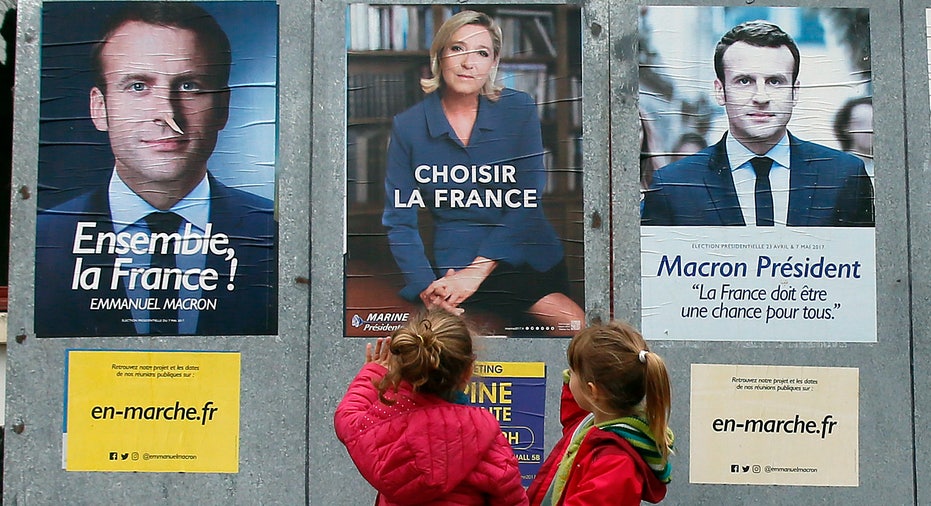Market mood sanguine ahead of French election

LONDON – The mood in financial markets appears relaxed, upbeat even, heading into Sunday's French presidential election on the belief that centrist Emmanuel Macron will prevail by some margin.
It's so sanguine, in fact, that it would make a surprise victory by his rival, Marine Le Pen from the far-right, all the more shocking for markets.
The market chaos could dwarf the volatility seen after Donald Trump's election as U.S. president in November or Britain's vote last June to leave the European Union. The day after Britain's vote, for example, Europe's Stoxx 600 index fell 7 percent and the pound tanked 10 percent.
"We rather expect reaction to be worse than after Brexit," said Thomas Nilsson, a trading strategist at Nordic corporate bank SEB, of the prospect of a Le Pen win.
There are several factors behind the relaxed mood in markets.
Macron has been the outright favorite since he topped the first round of voting on April 23 with 24 percent of the vote ahead of his rival in Sunday's election, Le Pen, who got a little more than 21 percent. Polls show Macron is running around 20 percentage points ahead of Le Pen in the runoff and is widely perceived to have come out on top in Wednesday's sole head-to-head debate.
The reaction in markets to both Macron's first-round win and his performance in the debate clearly show a preference for the 39-year-old former investment banker, who was also an economy minister in President Francois Hollande's government. The CAC 40 index of leading French shares has spiked to levels not seen since early 2008, before the most-acute phase of the global financial crisis, while the euro has reached six-month highs close to $1.10.
That bias in favor of Macron rests on a number of factors, above all his views on Europe. Macron is a keen advocate of the European Union and the euro currency, while Le Pen has proposed taking France out of both.
Not only that, Macron has made proposals for more integration between EU economies and budgets, measures that many in the markets think will help shore up the euro currency, whose design flaws were exposed by the region's debt crisis over the past few years.
"If Macron were to be successful in advancing at least some of his pro-European agenda, it could ultimately stop Europe's 'navel gazing' and allow the region to move forward with advancing much-needed governance reforms," said Jaisal Pastakia, Investment Manager at Heartwood Investment Management.
That period of 'navel gazing' has existed since the Greek debt crisis first erupted in late 2009. In the years since, governments, particularly those in what is now the 19-country eurozone, have fought to put out one fire after another, a period that involved multiple state bailouts, waves of austerity and mutual distrust. Presidents and governments have come and gone, and Europe — as an economy — has failed to grow as much as others like the U.S.
Those chronic problems were exposed by the Brexit vote, a decision that added another layer of uncertainty to a region struggling to relay a positive message to its people, who have been tempted by more populist voices relayed by the likes of Le Pen and before her, the Dutch far-right leader Geert Wilders and Austria's Norbert Hofer.
Both Wilders and Hofer were defeated in elections — but not by much.
Europe's leaders will hope a defeat for Le Pen will mark the moment the populist tide is turned back.
"The populist wave may be faltering but it is too early to call time on the movement," said Jamie Thompson, head of macro scenarios at Oxford Economics. "Given the fundamental nature of the underlying economic and cultural challenges, a major reversal of the populist wave will require more than cyclical economic recovery or progress in tackling the refugee crisis."
Should Le Pen win, the market reaction Monday morning could be more severe even than Trump's election or the Brexit vote.
"For the markets, a Le Pen victory would be a nightmare, followed by a long period of uncertainty," said SEB's Nilsson. "The fact that the markets already think this is a done deal indicates that initial reactions if an upset were to happen would be profound."
No pressure for investors!



















